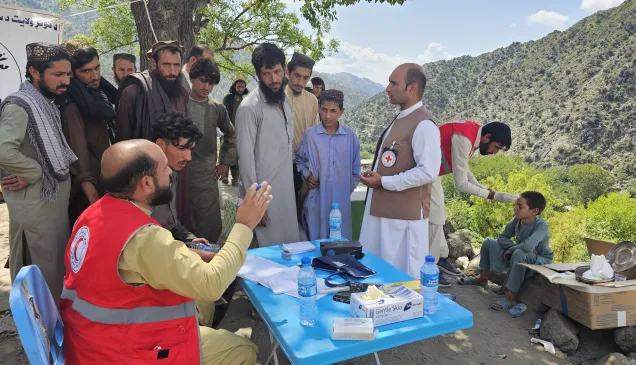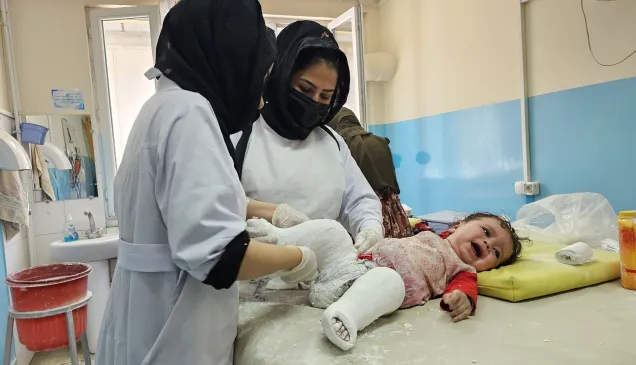Afghanistan: Cash-for-work project supports vulnerable families
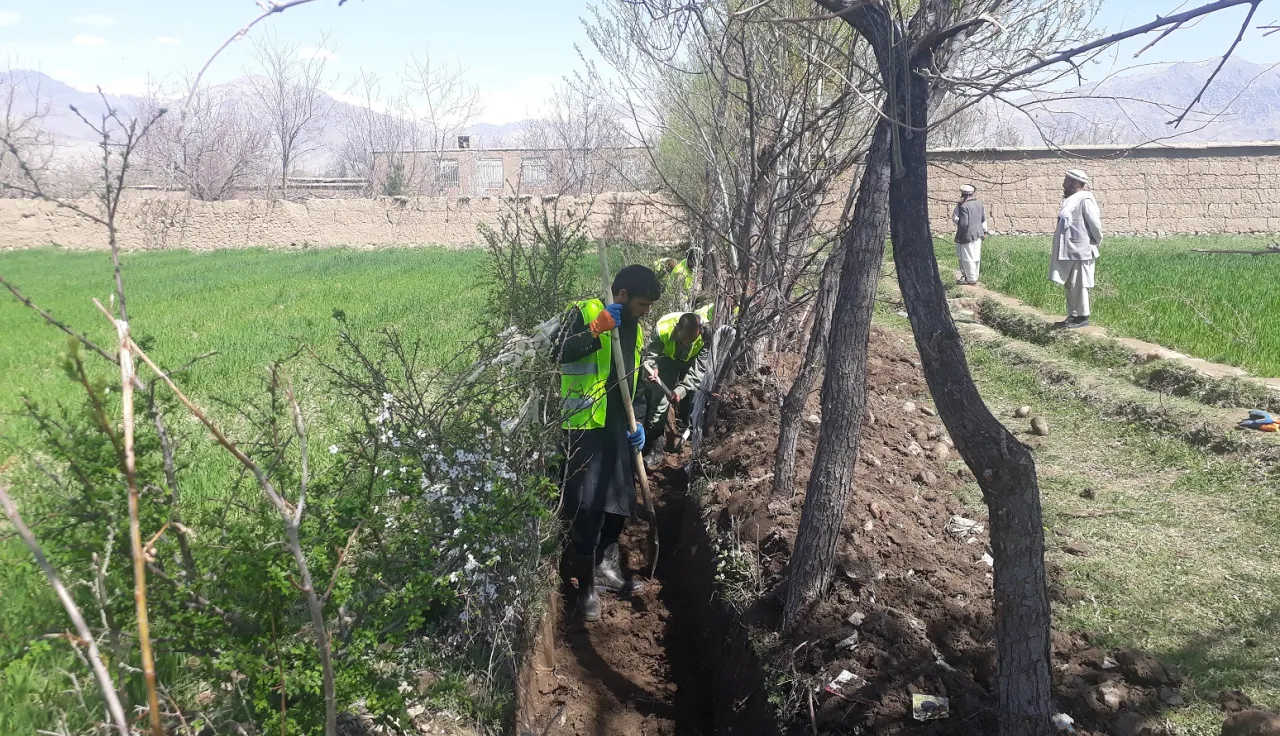
The International Committee of the Red Cross (ICRC) launched a new cash-for-work project in Gulbahar, Afghanistan, which saw 203 workers from the most vulnerable households receive work for a month to earn an income. The project to clean irrigation canals also benefits the wider community, which owns some of the agricultural plots of land.
The cleaned and upgraded canals will allow farmers in Gulbahar to irrigate their main summer crops, such as wheat, maize, and beans, which are planted on 18,720 jiribs of land (around 9,250 acres). This will also substantially improve the community's food security (ability to access sufficient, safe, and nutritious food to remain healthy) and ability to earn an income from the harvest this summer. This is particularly important given the ongoing economic crisis in Afghanistan, where labor and job opportunities are severely limited, and many people are now relying on a small income from agriculture to survive.
"Assistance in the form of cash for work eases the economic strain on these vulnerable households and also benefits the wider community," explained Natacha Bazin, the ICRC's head of office in Gulbahar.
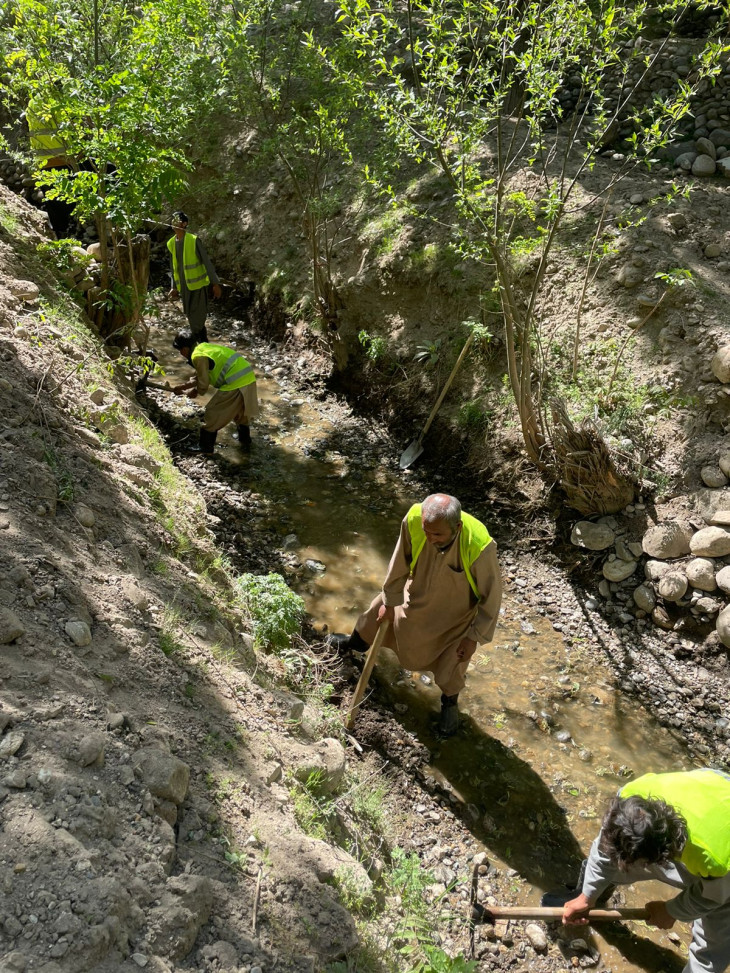
WORKERS CLEAR OUT DIRT AND STONES FROM AN IRRIGATION CANAL TO ALLOW A SMOOTH FLOW OF WATER TO IRRIGATE THE FIELDS.
ABDUL WAHID SEDIQY/ICRC
"This project has helped us feel like we are not alone, and the money we have earned will help to sustain us in the coming weeks," said Mustafa, who was one of the workers on the project.
Appreciating the project, Mohammad Kareem, a Sayed Khel District representative, spoke of its multiple benefits.
"It provided work for local people and helped them provide for their families. Also, the farmers now have water irrigating their plots, which will yield better crops and will help to provide a better income compared with previous years," he said.

MUSTAFA, ONE OF THE WORKERS ON THE PROJECT, USED THE MONEY HE EARNED TO BUY FOOD FOR HIS FAMILY.
MIRWAIS NOORI/ICRC
The tools provided by the ICRC for the project have been handed over to the community so they can maintain the canals for years to come. Afghanistan is a country in crisis and the economic, social, and humanitarian emergency is deepening. Over half the population now needs food aid and ordinary people are struggling to survive. Income streams have dried up and the country's banking and liquidity crisis has left people with no access to savings or credit, which is eroding their resilience. This also coincides with the hunger gap period – when there are very limited fresh fruits and vegetables available – and is likely to result in high levels of acute malnutrition.
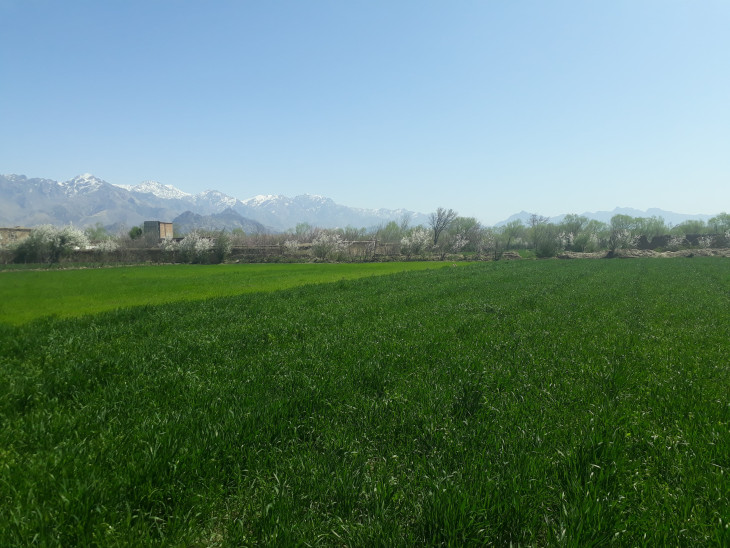
THE CLEANED CANALS ENSURE A SMOOTHER FLOW OF WATER TO IRRIGATE THE MAIN SUMMER CROPS IN GULBAHAR AND HELP PRODUCE A BETTER YIELD.
MIRWAIS NOORI/ICRC
States must invest in Afghanistan. Humanitarian organizations cannot effectively replace a functioning public sector, nor can they fully meet the needs of the Afghan population. This is the only way to develop and provide essential services, such as health care, water, and education. The ICRC has served the people of Afghanistan for more than 40 years and will continue to do so as long as our support is needed. We are operational across the country, together with the Afghan Red Crescent Society. We currently have a team of over 1,800 staff who provide a range of humanitarian services, including health care, physical rehabilitation support, protection, water and sanitation, and economic security. Our teams are present in Khost, Herat, Lashkar Gah, Kandahar, Kabul, Mazar-i-Sharif, Faizabad, Jalalabad, Ghazni, Gulbahar and Farah.

